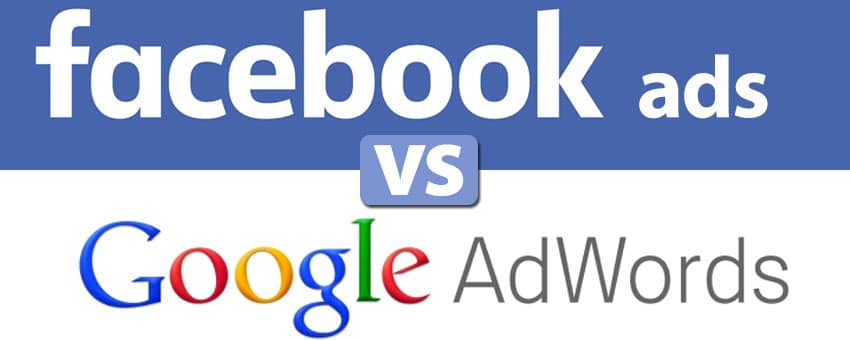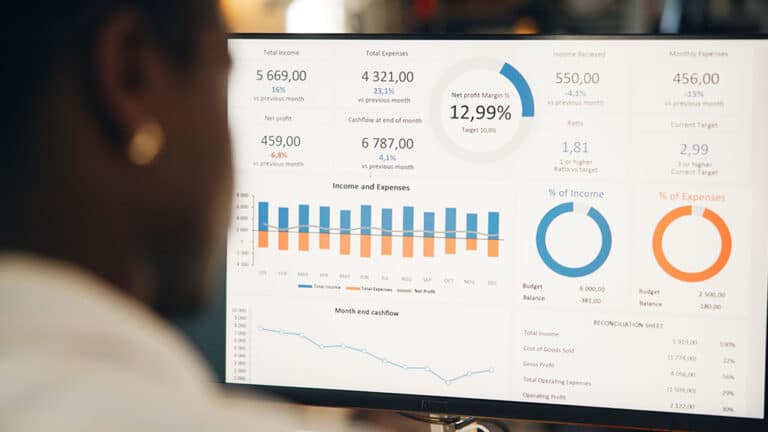Facebook Vs. Google: How to Choose the Right PPC Platform
PPC can be a scary world for inexperienced business owners. But it’s probably a very enticing one. You’ve probably heard of the stories of competitors killing it via paid search, so your curiosity is peaked. PPC marketing is really something that you should consider. It’s a great way to get a surge of targeted traffic to your business.
One of the first things that you should start looking into is your PPC platform. There are many different platforms out there, so for the sake of brevity, we’re going to discuss the best platforms.
Google Adwords
Google Adwords is the Big Daddy of all PPC platforms. That’s not to say that it’s the best platform for your business. But it is to say that you should seriously consider it for your business. It’s the most popular platform due to the high volume of people who use Google, which is, as a rough estimate, just about everybody surfing the web. So you’ll have eyeballs on your ads.
Google is far from the cheapest PPC platform. Google has the most traffic of any other platform and it does have a wide array of different analytics, so it’s understandable why it would be relatively expensive. If you want cheaper ads, you should go to another platform. Knowing the limitations of your budget is an important factor when doing PPC.
Some niches/ markets will be more expensive than others. PPC is a competitive space; other marketers will want to buy the same ad space that you’re after, which will hike the PPC rates. The more people there are buying ads, the more expensive it will be.
The chances are high that you’ve already seen, or even clicked on, a Google ad. Enter a search term into Google, and above the first spot, you’ll likely see 2 or 3 relevant ads. You will see ads on the sidebar area. If you click on a website, they may be used by Google for ad space– on these sites, you may see banners ads on the top of the page.
With Google, you can create ads in different sizes. You can also create different types of ads.
- Text-only- These ads are probably the easiest to create. These feature a headline and a small blurb of descriptive text. You have the option to have ad extensions, which gives you the ability to add more details like location, business hours, phone numbers, etc.
- Image ads- These are image-based. These are great for banner-sized ads. The design for these type of ads is absolutely crucial if you want to see success.
- Video Ads- These are video-based. This is a great way to engage your prospects.
- Call-only- These will prompt prospects to call your phone number. If they click on the ad, they’ll call your business. These ads will only work on devices (smartphones) that can make phone calls.
- Product Listing- These ads feature a product that your selling. They’ll be text-based and they may have a small image that shows the product .
Pros and Cons of Adwords
Pros…
- The world’s largest ad platform
- The platform will receive a great deal of traffic
- Very intuitive tracking analytics
- A wide array of ad formats
- Great if you want an immediate surge of sales
Cons…
- Can be expensive
- Doesn’t have extensive targeting options (we’ll get to that later)
Facebook ads
Where Google is the King of the search platforms, Facebook reigns supreme on social media. It has the most amount of users of all the social media networks, so you will have a great audience for your ads. Because it’s a social platform, it functions differently than Google, and can offer different opportunities.
With Google adwords, for instance, you can target people based on search terms. So, if someone searches for Boston restaurant, your ad will appear. With Facebook, you can target people based on other criteria. You can target people based on
- Gender
- Likes and interests
- Location
- Field of Study
- Workplace
- Relationship status
- Education
For these reasons, Facebook is absolutely money when it comes to targeting demographics. With adwords, you can target based on keywords, topics, location and devices. With Facebook, you can get more specific. With Facebook, you can target people based on their favorite TV show or movie; you cannot do that with Google.
Facebook ads are, on average, 1/3 of the cost of Google ads. Of course, the cost-per-click (CPC) may vary across industries.
Facebooks ads pros and cons
Pros…
- Robust system for targeting audiences
- Cheaper CPC
- Facebook is the biggest social network, so you will find good traffic
- Is great for engagement and lead generation
Cons…
- Not a wide array of ad formats
- Is not as effective as Google for immediate sales.
Who wins?
It comes down to this: Your goals for the campaign. If you want to build brand awareness and generate leads, then Facebook will win.
If you want quick sales, then Google is better.
Google is a consumer-friendly platform. When people enter a keyword like “Emergency plumber”, they are looking for a plumbing service right now. People use Google to research solutions to their problems. You have the ability to target a great deal of buyer keywords that will yield profitable results if your ad is decent.
People don’t generally go on Facebook to research solutions. They go on Facebook for a leisurely getaway- chatting with friends, liking pages, etc. This doesn’t mean that Facebook is ineffective, however.
Facebook ads are great for building relationships with your prospects, and it can get them talking about your business. This will translate into more sales, if done properly. With Facebook, you can target based on who people are and what they’re interested in, which is extremely valuable.
To choose the best platform, figure out the outcome that you’d like to achieve, and go from there.
Are you ready to discuss your next project with the leader in website design and digital marketing? If so, contact Zen Agency today! We are a group of experts!

















